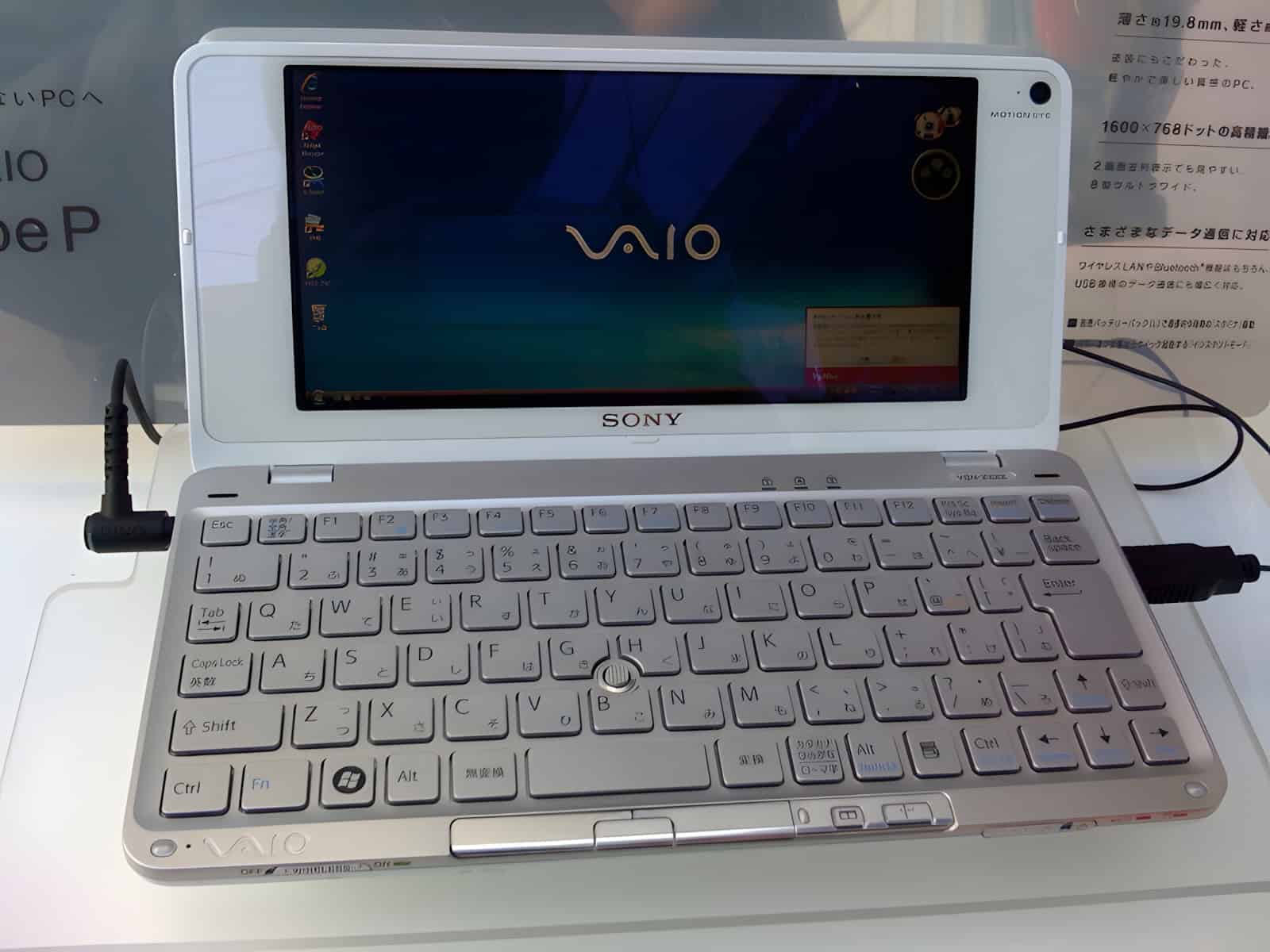As someone who loves the Sony brand almost as much as I love Apple, I had a love affair with Sony’s P-series laptops. Well, it wasn’t exactly a love affair, but I was in love with the size and shape of this lineup. It was everything I wanted in a laptop: small and compact but functional enough to run a full Windows setup.
I remember going into Sony’s stores back in the day and playing with these for hours, trying to build the courage to spring for one. Well, that never happened, at least not initially, but I thought this was one of the best laptop designs ever.
Sadly, this laptop’s compact design, decidedly smaller than most netbooks, never took off as Sony had hoped. Still, there is no question that this design remains one of the most ideal sizes in the history of compact laptops. Thankfully, we have a video from This Does Not Compute to help us look back at this incredible albeit underpowered design.
Sony’s “Lifestyle PC”
Initially billed as a lifestyle PC, the P series ultraportable subnotebook computer was launched in January 2009. It’s hard to argue that these computers were launched at the same time netbooks were rising in popularity, so it’s pretty clear Sony wanted to be in this space but do something different from the likes of ASUS, Acer, and Dell.
With its 8-inch display, the Sony Vaio VGN-P70H we see in the video from This Does Not Compute is incredibly small. While the individual who previously owned the computer installed Linux, we also see the installation of Windows Vista in the video. Remember Windows Vista? Yikes!
While the 1600 x 768 display is an awkward resolution, it’s hard to argue why Sony thought this computer was a “lifestyle” PC. Smaller than a netbook, there is no question it was designed as a go-anywhere design as it could easily fit in a backpack or even a large purse.
Intel Atom Processor
Look, there’s no way around saying it, so I’m just going to come up and say it. Having Windows Vista or Windows 7 with an Intel Atom processor was just awful. It was a horrible experience on a netbook, and anyone who says otherwise is kidding themselves.
When paired with 2GB of RAM, the Z520 CPU was underpowered by every measure. For this reason, it became immediately apparent that you were paying for Sony’s design and not its regular laptop performance. When this machine launched, Sony had a reputation for beautiful laptops that mainly were on par power-wise with its competitors.
As the video indicates, this is not the case for this machine. It’s underpowered, and the original buyer thought installing Linux was the best way to use the processor.
A Tough Sell
As This Does Not Compute shows, one of the most challenging issues was the 8-inch display. Is it good for watching movies? Yes. Being productive? Not at all. Using the Sony P-series was a hugely tricky proposition unless you have near-perfect vision. You’d spend most of your time squinting even to see the Windows Vista start button as much as you would typing in website addresses.
In addition to being challenging to use visually, the battery life only lasted 2-4 hours, which means you’d need a charger if you were leaving home for the same amount of time. Add in the squishy keyboard, single-core processor, and underpowered GPU; it just doesn’t live up to its price tag. At the very least, it would have been great if Sony had allowed you to update the RAM, but this laptop isn’t user-upgradeable, which is crazy for a $900-$1,000 price tag and quickly explains why it never took off in the market.
Check Out This Does Not Compute
Check out This Does Not Compute’s YouTube channel if you want more videos like this. With over 416,000 subscribers, 537 videos (and counting) like this show off some of the best in retro computing.
The image featured at the top of this post is ©Yoggy / Creative Commons Attribution 2.0 Generic license.

